The role of women in the cannabis industry has seen dramatic shifts in recent years. Gone are the unflattering stereotypes of consumers and an out-of-date male-dominated industry. In their place are more and more successful women taking the reins and leading the industry to new heights.
Women in cannabis have historically taken a backseat. With changing attitudes to consumers, successful business models, and shifts in legislation, the role of women has been revised. Now, more than ever, it is crucial to give women the recognition they deserve for modernising and ‘feminizing’ the cannabis industry.
For years the typical cannabis consumer, colloquially known as a dope or pothead, has been depicted by popular culture as a rather lazy and idle guy who likes to indulge in his habit surrounded by his mates. Women consumers, meanwhile, have been marginalised, ridiculed, and basically forgotten. Much of the cannabis industry has chosen to run with this sexist focus to attract primarily male consumers.
As the movement towards legalisation has grown internationally, women have finally started to come out of the cannabis closet. Consequently, popular culture depictions of women using cannabis have shifted.
It is becoming increasingly common to hear news of women getting involved in the cannabis industry, and we are now seeing a greater presence of female stakeholders in the cannabis scene. Women have proven to be clever activists and serious marijuana consumers, and their numbers can no longer be ignored. Finally, the industry has started to recognise women’s importance.
Cannabis stereotypes are changing
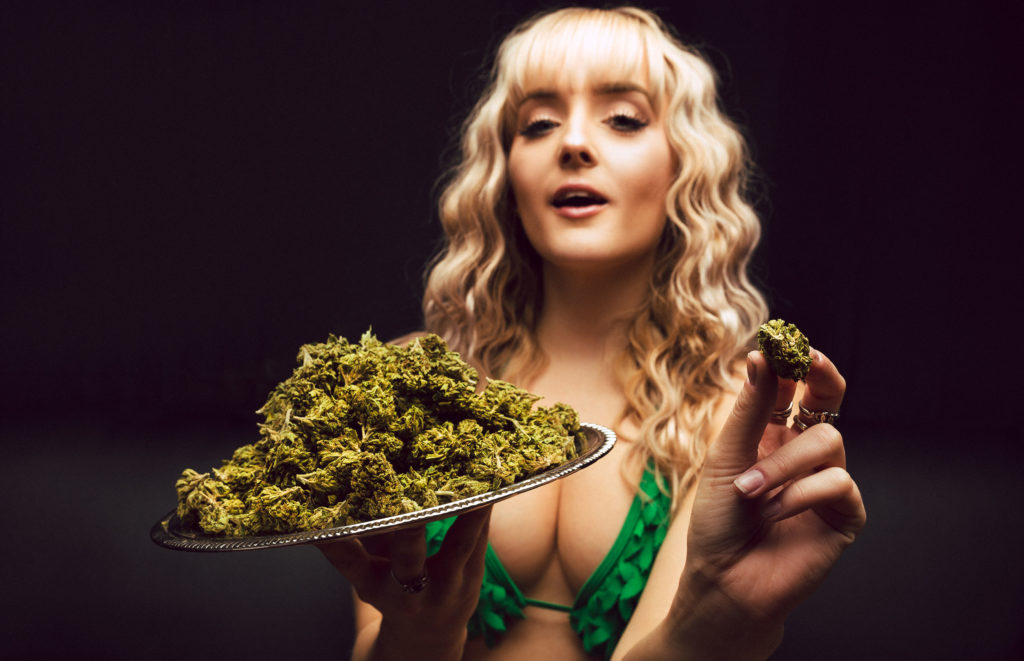
As a result of the depictions in popular culture the cannabis sector has often been associated with almost exclusively male groups.
While there have been all sorts of caricatures of male ‘marijuana dope heads’, from Cheech and Chong in the 1960s to Seth Rogen more recently, women who enjoy cannabis have been marginalised and ridiculed, if they are mentioned at all. Generally, the 20th-century examples of women who have been portrayed casually smoking cannabis in films such as Annie Hall, have been the exception rather than the rule.
Much of the cannabis industry has had an equally sexist focus (which has consistently been the norm across all sectors) to attract mostly male consumers. Fairs tend to have a proliferation of skimpily dressed hostesses who hand out promotional material for the exhibited products.
Specialist magazines often feature suggestive photos of bikini-clad girls, surrounded by strategically positioned marijuana plants and leaves, as they smoke from phallic-looking water pipes. It is evident that one of the common problems within the cannabis scene and industry has been the sexism, which is deeply ingrained, and which features heavily from the labelling to the advertising of the products.
Women are good for business
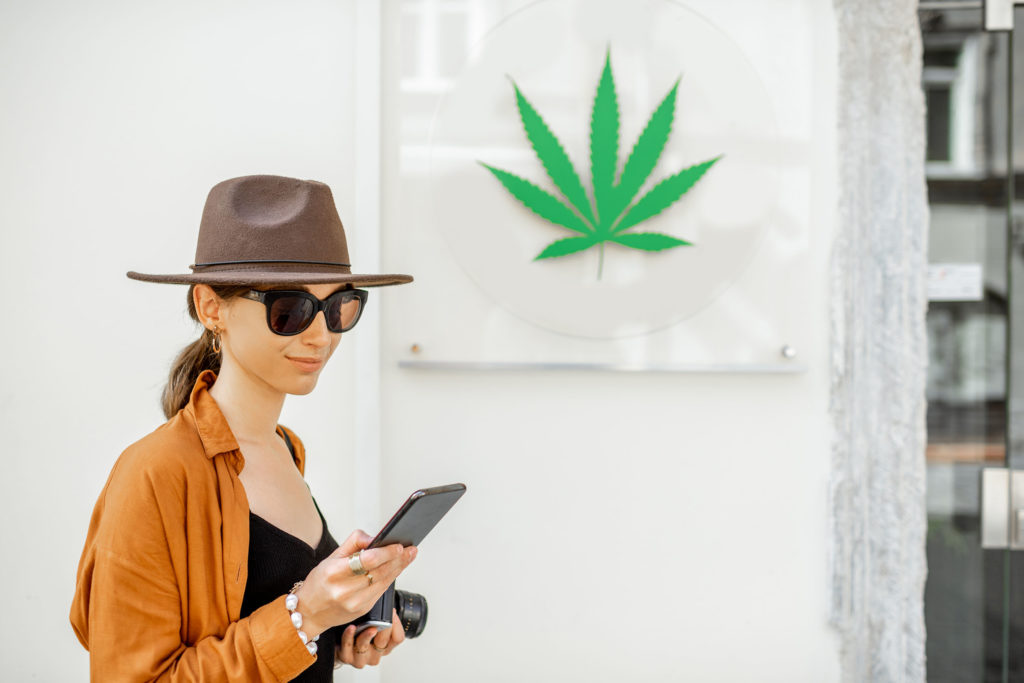
There is something distinctive about the role of women in the cannabis sector and their relationship with the cannabis industry, which has meant that the way in which men and women approach it tends to differ. Until quite recently, women have discreetly smoked and grown cannabis. However, things appear to be finally changing, with an increasing number of women both becoming activists and taking high-profile roles in the industry.
Simultaneously, the popular view of female cannabis users has become wider. Increasing numbers of women have shown themselves to be serious consumers. The marijuana industry has begun to acknowledge the importance of women’s support for a successful outcome of the legalisation campaign.
Not only that, and almost as important: appealing to women is good for business. Many companies, especially in the United States, have been working to attract female consumers by changing their advertising and business strategies.

In 2018, the exhibition ‘We Are Mary Jane: Women of Cannabis’ opened at the Hash Marihuana & Hemp Museum in Amsterdam. The exhibition aimed to highlight women at the forefront of cannabis culture, from the ancient Chinese goddess of hemp, Ma Gu, to the pioneer of Dutch hashish making, Mila Jansen. Exhibitions such as this have been integral to changing perceptions of the role of women in cannabis and creating space for their specific experiences.
Important women figures
Longstanding advocate Michka Seeliger-Chatelain has been on the cannabis scene since the early 1970s and is a clear example of the historical importance of women in cannabis. An expert on hemp and marijuana, Michka regularly writes articles and books on cannabis that have been translated into multiple languages. She is also the founder of Mama Éditions publishing house.
Known as the ‘Grande Dame of Cannabis’, Michka was honoured with her own bespoke strain by Sensi Seeds, confirming her iconic status as a key figure across cannabis culture.
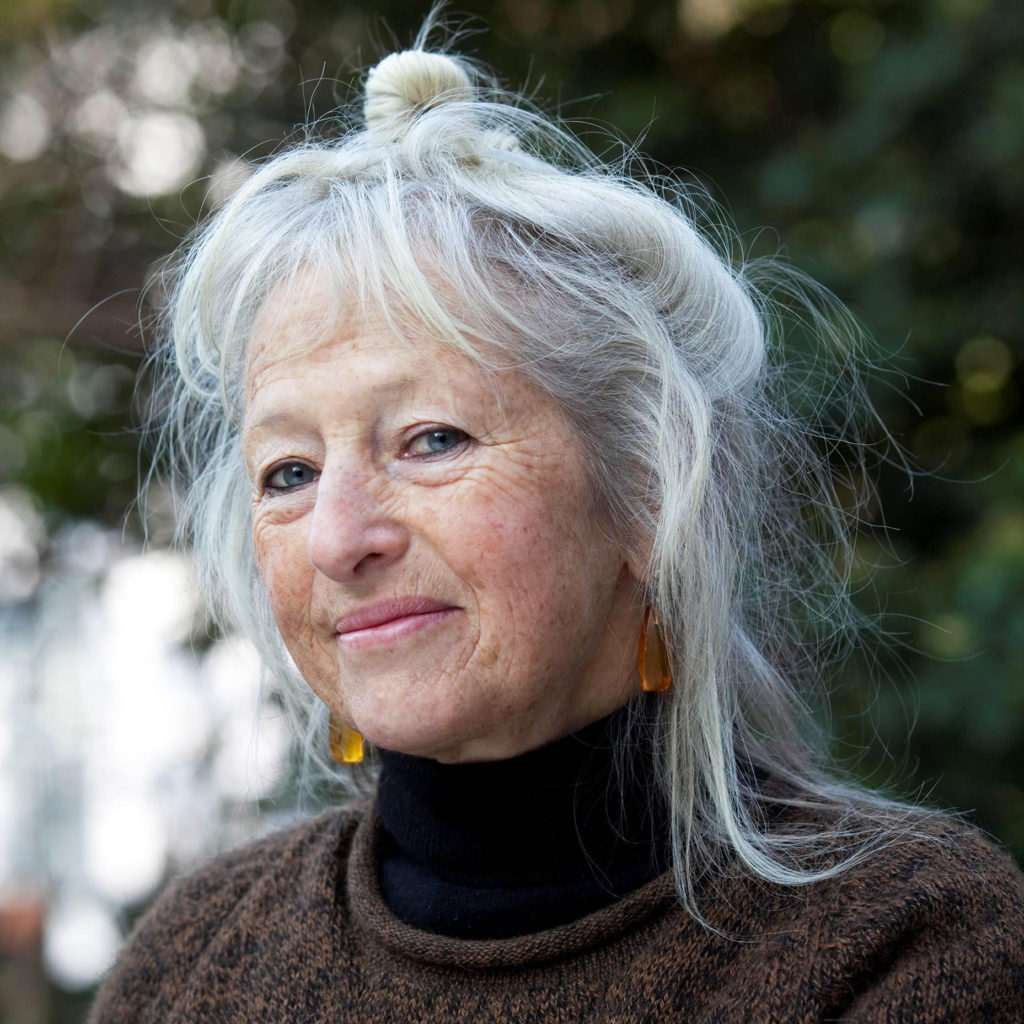
In the not-so-distant future, women will become the most important consumers of cannabis-based products. The aim is to replace prescribed medicines such as sedatives, antidepressants and sleeping pills, which are widely consumed by women, with cannabis.
They also look set to encourage the growth in the market for wellness products. However, to successfully access the female market, the industry will have to convince women who haven’t tried cannabis products to overlook the traditional portrayal of cannabis consumers as ‘lazy men’.
Debunking stereotypes
The consumption of drugs in general, and cannabis specifically, does not mean the same thing for men and women, nor is it regarded in the same light. For men, the consumption of cannabis is seen as a natural, sociable, and culturally acceptable pastime. For women, it entails a defiance of prevailing cultural norms.
Traditionally women tend to be the main carer or parent, which leads to criticism around the encouragement of drug use in front of children. Even for women who have no children, there is still a lingering stigma around the consumption of cannabis.

The Spanish organisation REMA (Network of Anti-Prohibitionist Women in the Field of Drugs) has been working alongside the Department of Health of the Generalitat de Catalunya to research the issue of motherhood and cannabis. The aim of the study is to incorporate the voices of women of different ages, origins, and personal trajectories to provide representation of a range of experiences of maternity and cannabis.
As long as marijuana is illegal most women, and particularly mothers, who smoke cannabis will continue to exercise discretion and care. The threat is all too real. In many western countries, if a woman is found guilty of breaking the law regarding cannabis, it could negatively impact her claim over custody of her children.
If people find out that you are a female cannabis user, many friends and family members will point an accusing finger at you and stigmatise your habit. Unfortunately, in most cases, usage alone is enough to bring about this hostility.
Coming out of the cannabis closet
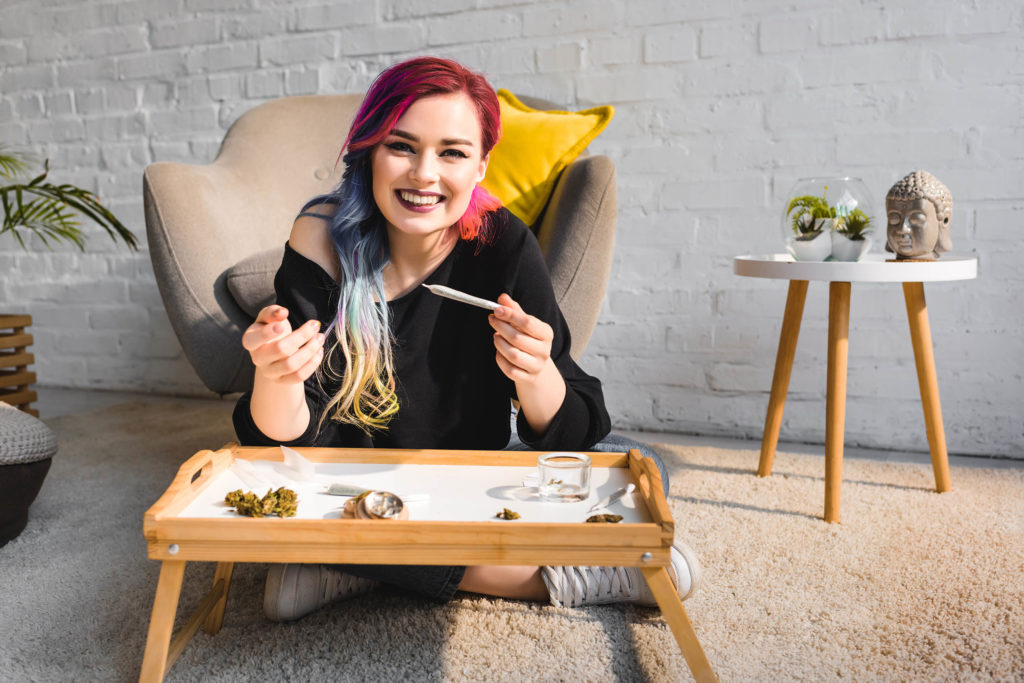
Whether cultural representations of marijuana smokers have affected women’s choices, or whether these merely reflect real life, the fact remains that many more men than women consume cannabis. In the United States, there are almost twice as many men as women (9.6% versus 5%) who consume marijuana regularly, according to a National Survey on Drug Use and Health in 2012.
Similarly, 48% of men have tried cannabis at least once, while only 34% of women have done the same, according to a Gallup survey in 2016.
According to the European Monitoring Centre for Drugs and Drug Addiction (EMCDDA), in the EU cannabis is the most consumed illegal drug across all age groups. The data suggests that there are more male than female cannabis users, although it appears that the gap is narrowing. Depending on the specific age group and gender, the prevalence of cannabis consumption varies enormously from one country to another.
In the United States, recreational cannabis is currently legal in 15 states and the District of Columbia. It has been decriminalised in 16 other states and the US Virgin Islands. Cultural differences seem to be waning along with prohibition.
Woman and Cannabis in popular culture

There is an increasing number of TV series and films where the issue of cannabis is openly discussed, as in the series Weeds, or where women are depicted consuming cannabis as part of their daily lives, as with the ladies in Sex and the City. These representations are increasingly leaving behind the typical stereotype of the ‘pothead’.
The debates no longer focus on cannabis per se, but rather on the reasons why people choose to use it. For instance, they point out that among groups of people who are first-timers, those who consume occasionally, and even daily, there are people from all walks of life.
As the hugely successful series High Maintenance demonstrates, getting high on cannabis is no longer seen as making a character cool, dumb, or irresponsible. Quite simply, it is just something that people do irrespective of gender and personality.
As the movement for legalisation gains momentum, women have finally started to come out of the cannabis closet. Many famous or public personalities have revealed their cannabis use or their stance in favour of legalisation, including widely publicised remarks by Rihanna, Lady Gaga and Miley Cyrus. During the 2014 Emmy Awards, comedy actor Sara Silverman showed off the cannabis vaporizer pen she was carrying in her elegant clutch bag as she walked down the red carpet.
The Netflix show Grace & Frankie features casual cannabis use by two older women and their comedic antics. This nuanced representation of consumers represents the diverse and inclusive cannabis community that embraces characters from all walks of life.
Women’s initiatives
There are initiatives, such as Marijuana Moms of Beverley Hills, started by a group of women in Los Angeles who are seeking to subvert the stereotype that suggests using cannabis automatically turns you into a bad parent.
Likewise, Jane West co-founded the network Women Grow, which “connects, educates and enables the next generation of cannabis sector stakeholders, through the creation of programs, community projects and events for aspiring and current business leaders”, as stated on their official website. Public perception of cannabis is rapidly changing across the globe.
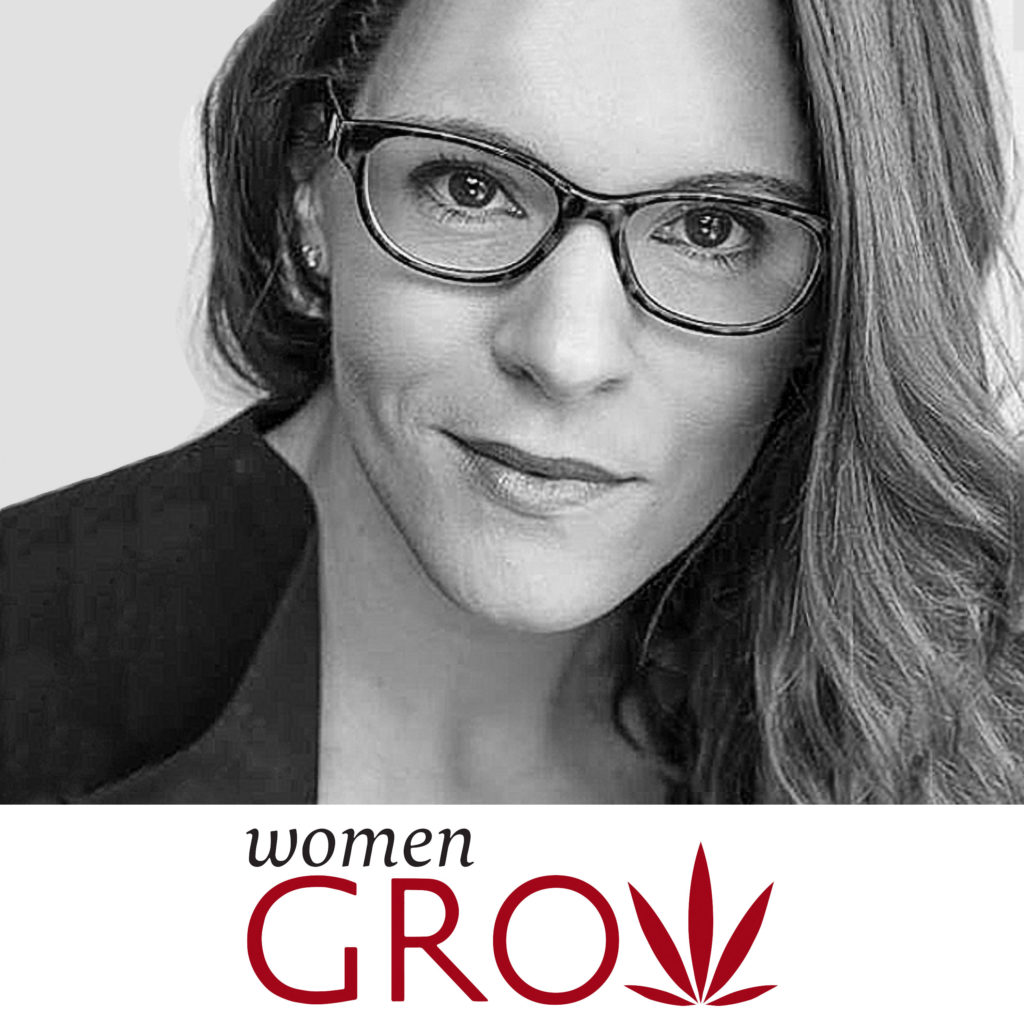
Set up by Carola Pérez in 2014, Dosmociones is a non-profit organization based in Madrid that offers assistance and support to therapeutic cannabis users, helping them to find the best treatment for their ailment. The project aims to fill the void for those who wish to know the medicinal properties and applications of cannabis, free from media misinformation.
The group organizes cultural events, conferences, information days, courses, workshops, seminars, screenings, fairs, and other activities aimed at publicising health education to a broader audience.
Another Spanish online initiative, Las Chicas Tambien Cultivan (Women Grow Too) was set up by Maria Barragans, Gemma Burgos, ad Davinia Hidalgo Mateo. After meeting at a cannabis fair where the awards ceremony exclusively crowned men, the idea for the group arose. Campaigning to make visible the double stigma suffered by women in cannabis, the group aims to offer advice and demonstrate that there is no one kind of cannabis user.
The entOURage Network is a platform and network for women, with a particular focus on the European cannabis market. Founded by women for women, the network’s mission is to create a safe space and empower women. Here, people can share ideas and dispel the stigma that continues to prejudice women in the industry.
Women have always consumed cannabis. Thanks to popular culture and other normalising factors, they now feel more comfortable talking about it. We now have images of women who have achieved both personal and professional fulfilment, on-screen as well as in real life, enjoying cannabis as if it were a glass of wine, with the takeaway message that their actions do not turn them into failures or bad mothers.
Women in favour of legalisation
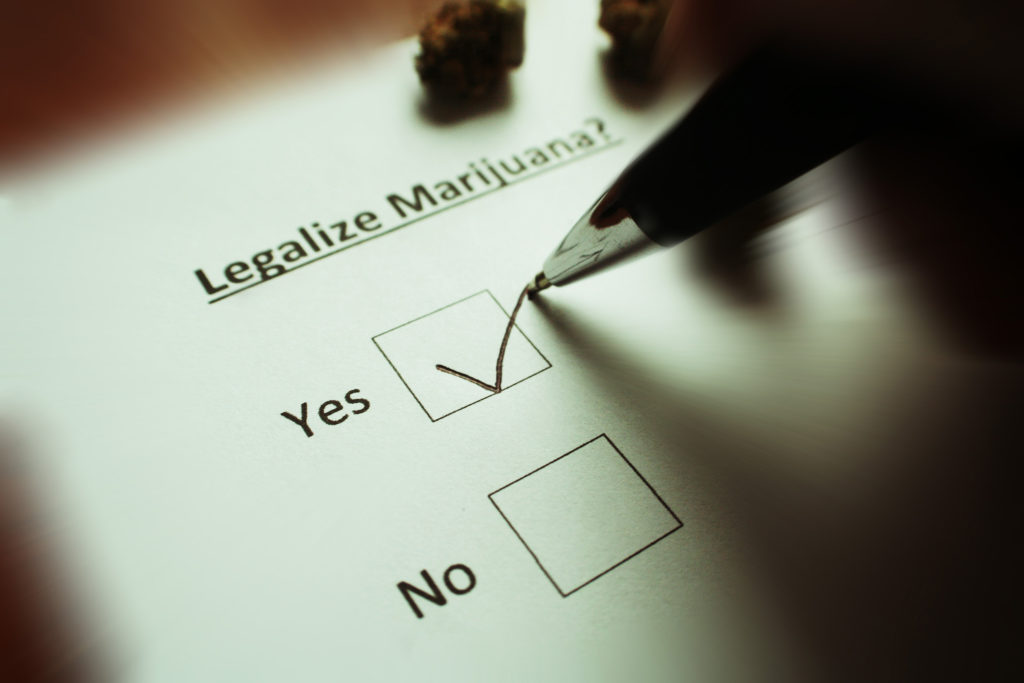
Women who openly participate in debates regarding cannabis have had a major impact on the movement in favour of legalisation in the United States. According to the study ‘Selling Cannabis regulation’, women’s votes have been decisive in many states where cannabis has been legalised.
The data gathered by the Global Drug Policy Observatory shows that the support of women in the 2012 amendment to legalise cannabis in Colorado rose by seven percentage points during the last month of voting, while support from men declined during the same period. Women’s support for the vote on cannabis in Washington state surged from 48% to 53% in the last few days before the election.
It appears that society at large needs women’s support. The consumption of cannabis in general is becoming more widely accepted thanks to the strong women who have been encouraging the movement.
A thriving business run by and for women
Without a doubt the cannabis sector is mobilising millions of people all over the world. Legalisation will be the next step. Companies have developed new market strategies to bolster their positive image and target a much broader and more diverse range of customers, signalling a move away from the negative connotations of the ‘stoner’ scene.

Olivia Mannix and Jennifer DeFalco founded Cannabrand, a marketing agency whose strategy is to promote the cannabis industry to the broader public. They are part of a new generation of marketing companies, particularly in the United States.
They are specifically targeting cannabis to associate consumption with people from all walks of life: successful professionals, full-time parents, senior citizens, healthy and respectable people. Cannabrand, a firm run by a group of women, has very clearly and emphatically led the way in terms of what the sector needed to work on to overhaul its image.
In the Netherlands, female-led coffeeshop Boerejongens (‘farm boys’) is similarly changing perceptions of Dutch coffeeshops. With a focus on quality that has sometimes been overlooked by the male-dominated commercial cannabis industry, founder Mariska is a driving force in the Dutch cannabis scene. She has three successful coffeeshops and a seed bank to her name.
Women-focused research into medicinal cannabis
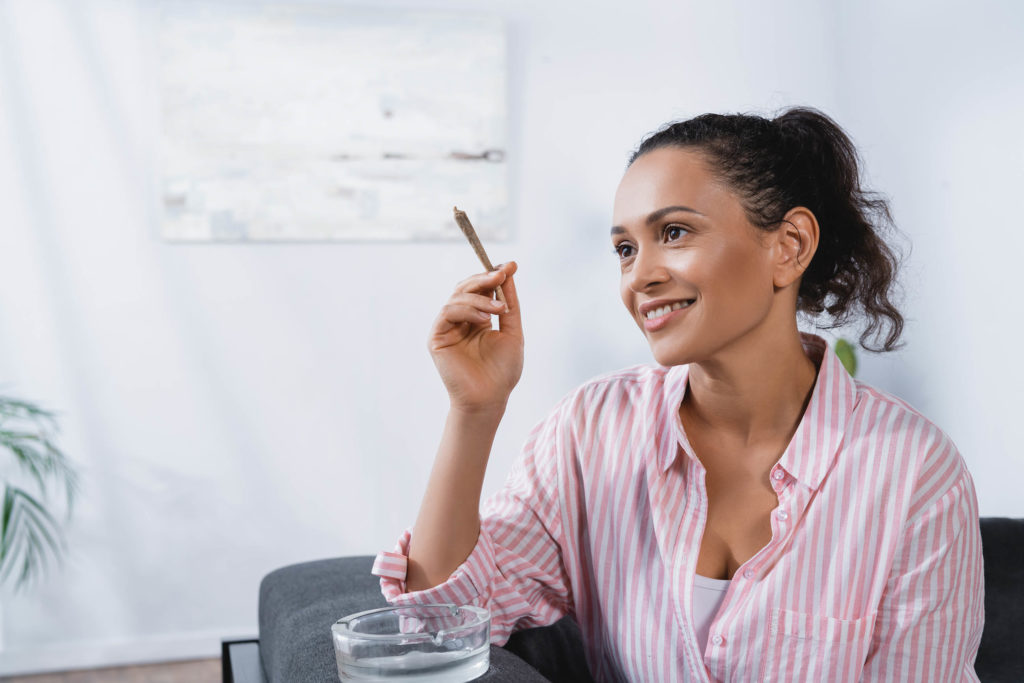
A driving force in the medicinal cannabis sector is molecular biologist Dr Cristina Sanchez. Working at the Complutense University in Madrid, her research focuses on cannabinoids as potential antitumoral agents in breast cancer and other types of tumours. The impact of her work has been integral to overhauling outdated assumptions towards the cannabis sector and pioneering medical advances in the use of cannabis.
Women consumers
In this emerging landscape, women are as likely to consume cannabis products as men, and it is no longer seen as acceptable to objectify them as advertising.
Cannabis has been traditionally packaged for men; however, as a prohibition crumbles, the shrewdest entrepreneurs have started to reframe their products to target women. Some clinics in Denver already have policies in place by which they refuse to sell any products with sexist connotations to not alienate female customers.
The change in attitudes can also be seen in cannabis advertising, which has left behind the traditional ‘pothead’ style by shifting towards the image of a healthy lifestyle that tends to attract female consumers. There is an enormous difference between this type of advertising and what used to be the norm just a few years ago.
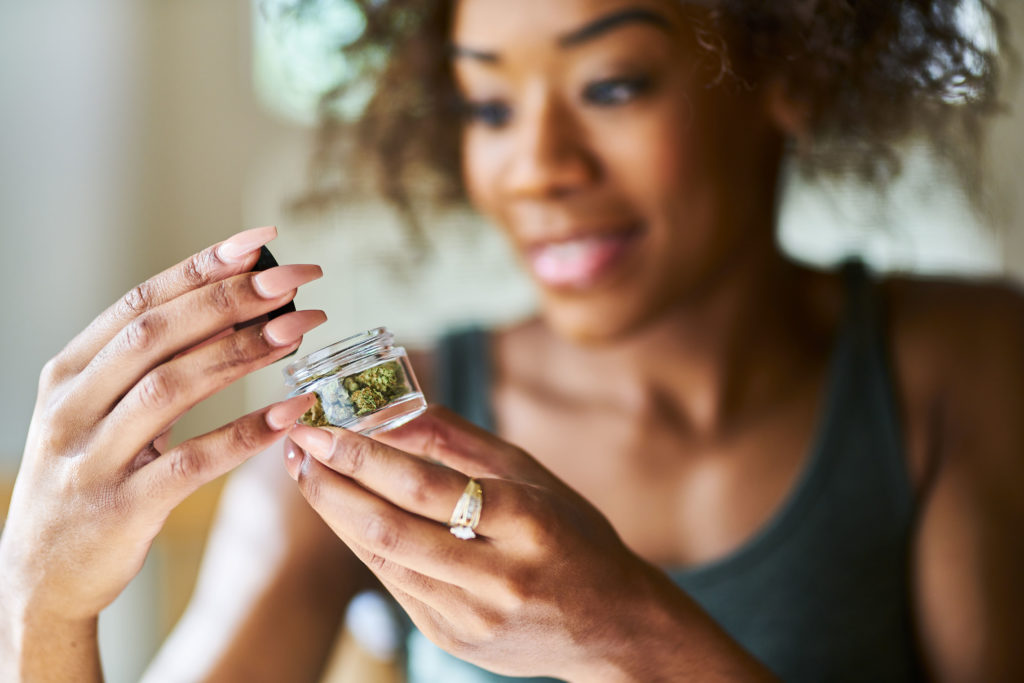
An example of this can be seen in the advertisement of the Seattle-based North American company Dama, promoting its oil, which depicts a healthy couple taking a long walk together. This could have easily been mistaken for the advertisement of a company specialising in outdoor pursuits.
Dama is just one of many companies whose aim is to sell cannabis products to women who value a healthy lifestyle. Many women use cannabis differently from men, not just consuming it to get high but also for its therapeutic effects: to relax, to relieve pain, or as a wellness supplement.
Until recently, inhaling cannabis by smoking was really the only way of consuming cannabis, but there is now a huge variety of far safer ways of consuming it. Cannabis delivery methods range from placing drops under the tongue, adding it to soft drinks and skin creams, and inhaling vapour using a vaporiser, to the less common skin patches and suppositories. Having different options appeals to many women.
Making progress
A 2019 report in the US found that 38.5% of employees in cannabis businesses identify as women. Sadly, only 17.6% of these women in cannabis companies held a “Director” or “Executive” role. Although traditionally men have outnumbered women in this area, more and more women are now taking up senior positions. There are an increasing number of women-focused initiatives.
Women’s presence and participation is on the rise in various areas of the cannabis industry. This is the brave new world of cannabis where its consumption can be regarded as healthy, fun, chic and safe. Thriving businesses run by and for women.

Given rapidly increasing legalisation and normalisation, the magnitude of the shift regarding cannabis cannot be assessed purely in economic or political terms. There have also been profound cultural and social transformations. The role cannabis plays in our lives is rethought, reconsidered, and reconfigured, with women at the fore. An era has drawn to a close, and a new one has begun.
There is a growing presence of women in the cannabis sector, with no doubt that the outdated stereotypes from the past will soon fade from the collective consciousness. As gender equality increases, the presence of women will increase in all sectors, including cannabis.
Ultimately, we are referring to real-life women. They are activists, mothers, lawyers, sociologists, scientists, politicians, publishers, journalists, businesswomen, entrepreneurs, women with various lifestyles, beliefs, thoughts, and concerns, who share the same goal. This is to publicly support the consumption and responsible regulation of cannabis and to continue to work towards its normalisation.
Are you a woman in the cannabis industry, or have you been inspired by one? Do you think we’re close to equality in cannabis culture, or is there still a long way to go? Share your thoughts with us in the comments.











